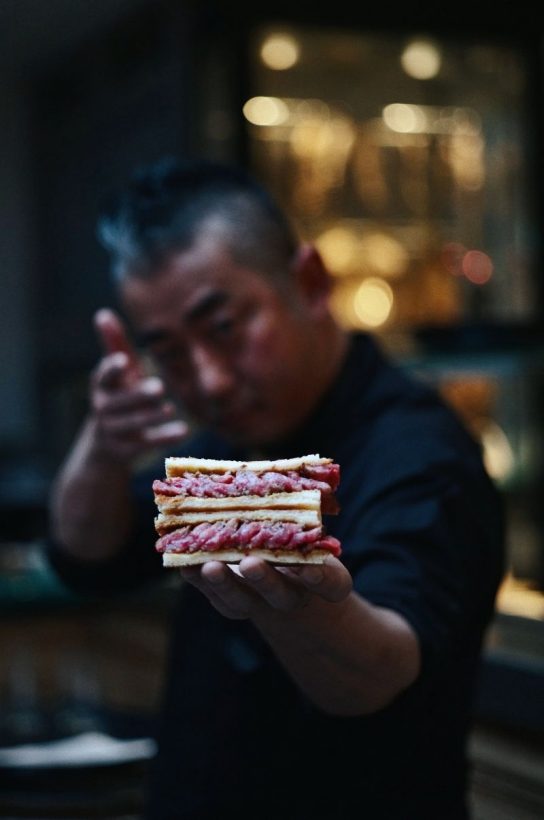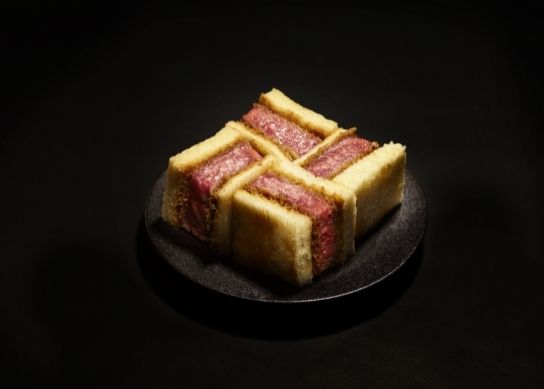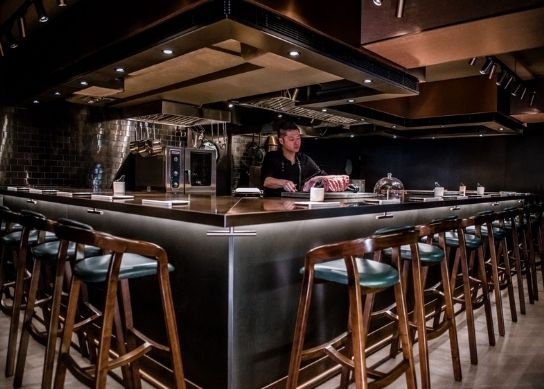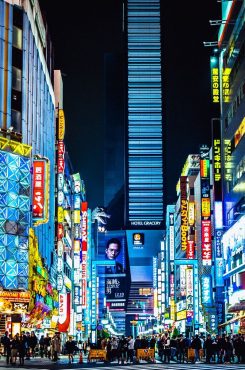A cult above the rest
Published 21 July 2021
by Henry Southan

Credits: Sarah-Louise & Christopher from @the_adventuresofus
Hisato Hamada, founder and executive chef at WAGYUMAFIA talks to CODE about all things wagyu, nurturing more meaningful relationships between diners and restaurant staff, and the exciting prospects of a London opening
“Food is the next global language,” Hisato Hamada says. This seems particularly apt, with the world experiencing a long period of restricted travel and hospitality closures. Over the last 18 months food has been a way for many to travel through cuisine and communicate in some way with other cultures.
Founded by Hisato Hamada and Takafumi Horie, WAGYUMAFIA started as a pop-up, “it was never meant to be a restaurant, it was meant to be just me and my friend travelling around, cooking wagyu”. The success of WAGYUMAFIA, however, has allowed them to open eight restaurants internationally, one being the famed WAGYUMAFIA THE CUTLET SANDWICH, which serves their acclaimed Kobe beef chateaubriand cutlet sandwich, which is priced at around £140.

The dish very quickly became an Instagram hit and saw many photographing themselves trying ‘The most expensive sandwich in the world’. The sandwich has since become a favourite of the likes of David Beckham and Ed Sheeran. Hamada says the dish was “the tipping point for WAGYUMAFIA”. The idea came about when he was hosting some friends at his home. A cutlet sandwich is a well-known cheaper street food dish in Japan, and WAGYUMAFIA are inspired a lot by street food markets in their cooking. He decided to create a fun, expensive version of the dish using the chateaubriand part of the wagyu fillet. He remembers that his friends “all of a sudden shut up and went quiet” and told him, “This is amazing, Hisato”. When asked about the high price, he says the costs involved in this dish are very high. “From a 2kg tenderloin, only 400g of it is the chateaubriand that we will use in the sandwiches. So, each 2kg tenderloin can only make about three sandwiches.” They have a secret bread recipe, use a 10-year barrel-aged soy sauce from a 270-year-old recipe, 8-year barrel-aged organic rice vinegar, and 15 different organic vegetables and spices go into their special sauce.
Before the inception of WAGYUMAFIA, Hamada worked in the film industry, and when working on the documentary, Food Inc., the famed founder of Ozaki Beef, Muneharu Ozaki, tweeted Hamada inviting him to tour his ranch. It was after this that Hamada’s interest in wagyu grew, and he became fascinated about where our food comes from and how it is produced.
On the WAGYUMAFIA experience as a diner, Hamada says, “the intimacy and chemistry between my staff and customers is one of the most important elements of my cooking”. Hamada worries about a lack of chemistry between diners and staff in many restaurants nowadays. He feels that people “take their pictures, critique the restaurant like they have been going forever, and leave”. He remembers witnessing a diner in a sushi restaurant aggressively critiquing a young chef and sympathising with him: “This is not okay, there must be mutual respect, the staff should respect the diners, and the diners should respect the staff.” Hamada says that dining at WAGYUMAFIA is a totally different feeling, “it’s like coming to one of your friend’s kitchen”.

When asked about the effect the pandemic had on his businesses, Hamada reflects that the start of the pandemic was very tough. WAGYUMAFIA lost around 1,000 reservations from overseas diners throughout the pandemic, and Tokyo was under a state of emergency. Hamada is optimistic about the future, however, and laughs about how it is usually part of Japanese culture to follow the government’s rules by the dot, but as soon as they banned the sale of alcohol, people began to say f*** you! “The Japanese without alcohol is meaningless, we love to find any excuse to get drunk.”
WAGYUMAFIA sent communications to their staff, guests, producers, and farmers with the mantra of ‘Ride it Out’ throughout the pandemic, as a reassurance that normality will resume.
In March, Hamada and chef Yoshihiro Narisawa came up with an idea called ‘Onigiri for Love’ to support the hospital workers and sake breweries that have suffered so badly over the pandemic. They brought back an old Japanese comfort food called Onigiri – a handmade Japanese rice ball with various fillings. He describes the snack as “something your mother would have put in your lunch box as a child”. Hamada and Narisawa travelled around Japan donating the onigiris to hospital workers, and chefs all around the world have since joined ‘The Onigiri Squad,’ and created their own versions, spreading the message of hope and unity.
Hamada is excited for the future of WAGYUMAFIA, and when asked about the rumoured London opening, he says “London is my special city, the first restaurant I sold my wagyu to was in Mayfair.” He has done many pop-ups in London and says he “always gets a true and genuine reaction from diners in London, and the buzz with each pop-up was growing stronger and stronger”. While still in the early stages, Hamada hopes for a Mayfair location as he feels an affinity with the area and remembers a good friend of his saying “Mayfair has to be the location of your London restaurant” back in 2014. CODE are certainly excited for their arrival in the city.




